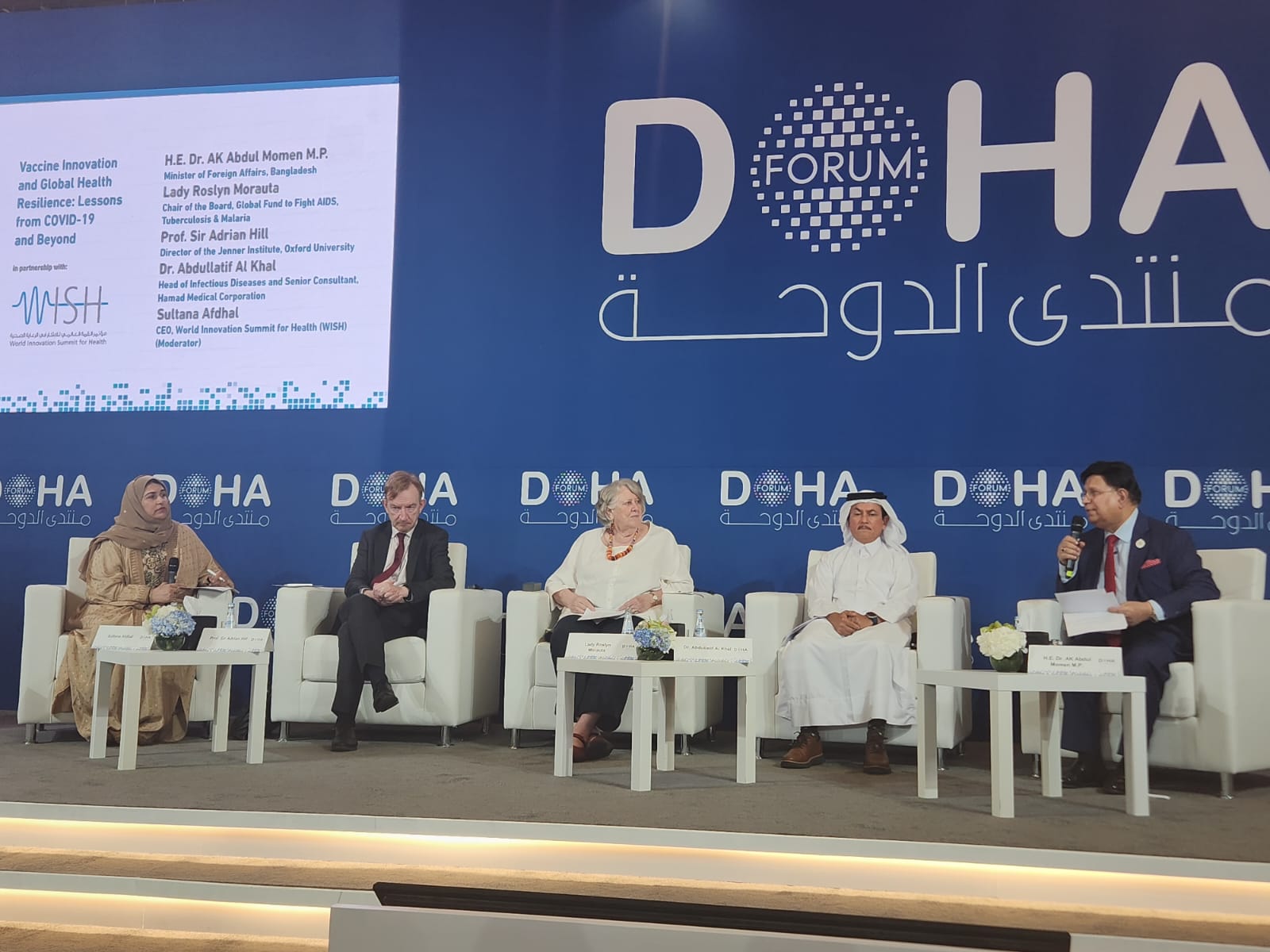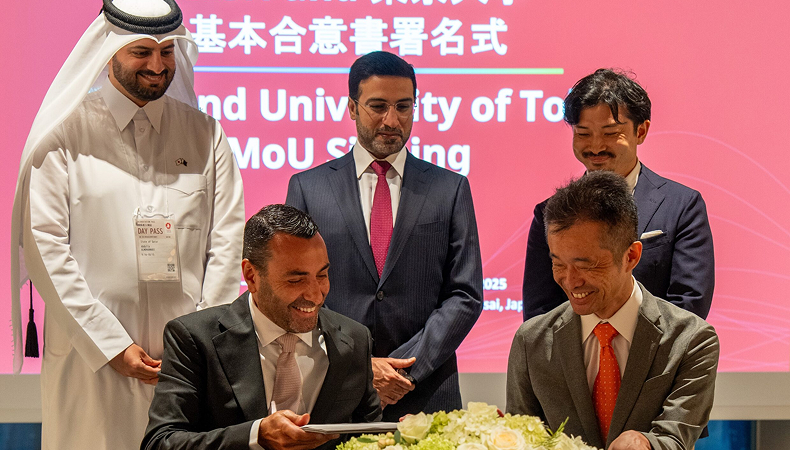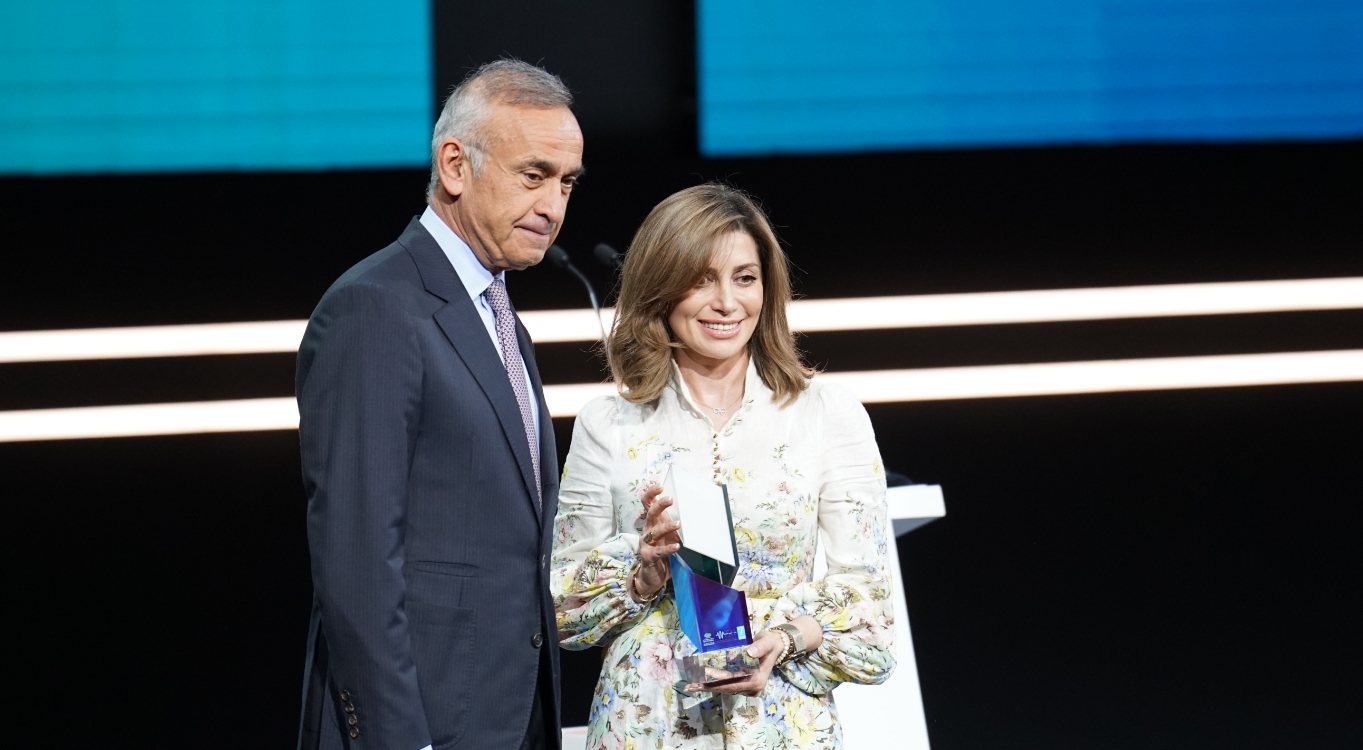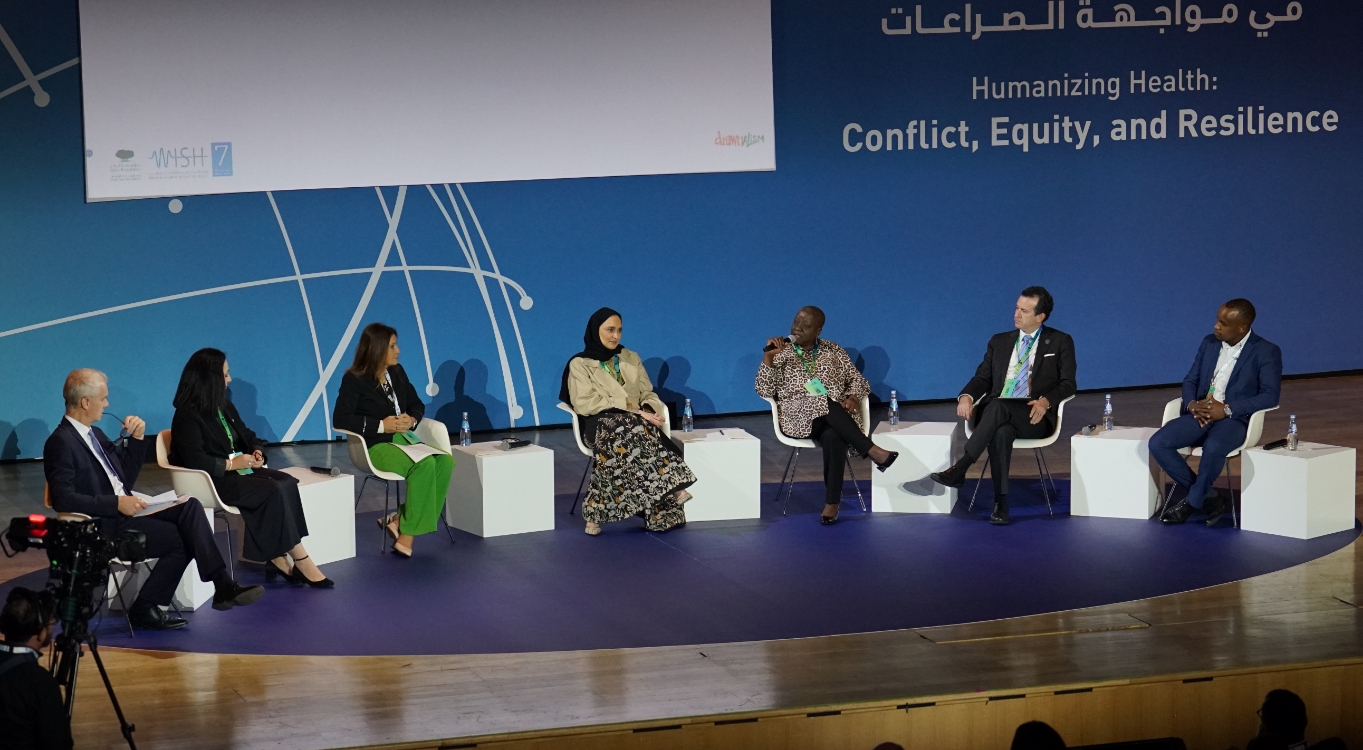World Innovation Summit for Health hosts session on post-pandemic global health resilience at Doha Forum

Global health and policy experts draw attention to the need for collaborative research efforts and equitable delivery of vaccines to all
The World Innovation Summit for Health (WISH), an initiative of Qatar Foundation for Education, Science and Community Development, hosted a panel discussion at the Doha Forum on Monday, December 11th, titled Vaccine Innovation and Global Health Resilience: Lessons from COVID 19 and Beyond.
This timely discussion brought together global leaders in health and government policy to share their invaluable insights into how to strengthen health systems, drawing from the lessons learned during the recent pandemic.
Invited to speak on the panel were Lady Rosalyn Morauta, Chair of the Board of The Global Fund to Fight AIDS, Tuberculosis & Malaria; Prof. Sir Adrian Hill, Director of the Jenner Institute at the University of Oxford; Dr. Abullatif Al Khal, Head of Infectious Diseases and Senior Consultant, Hamad Medical Corporation; and H.E. The Hon. Minister Dr. AK Abdul Momem M.P., Minister of Foreign Affairs, Bangladesh. The session was chaired by Sultana Afdhal, CEO of WISH.
During the panel discussion, Lady Rosalyn Morauta, representing the Global Fund emphasized the critical role of resilient health systems, noting: “Resilient health systems underpin our efforts to defeat today’s infectious diseases and respond to future threats. This is why the Global Fund invests around $1.5 billion per year in health systems.”
Prof. Sir Adrian Hill highlighted the ongoing issue of vaccine hesitancy and issues with supply and demand in the developing world, adding: “We should act to increase the global supply of vaccines – we need more manufacturing plants across all regions.”
Dr. Abdullatif Al Khal considered the local aspect of the topic being discussed, saying: “At a national level, intersectoral collaboration is key to building health system resilience. Robust governance with quick and effective communication channels that respond to shocks should be at the core of all functions.”
Meanwhile, H.E. Dr. AK Abdul Momen M.P. emphasised a focus on collaborative global research efforts: “Continuous research is not only for a better-informed response at policy level, but also to develop better facilities and to innovate. Cooperation, collaboration, and continuous dialogue is crucial.”
The session ended with contributions from the audience, with former Australian Prime Minister Scott Morrison thanking the panel for highlighting such an important topic. Rossella Miccio, President of health charity EMERGENCY NGO, drew the panel’s attention to the difficulties in trying to deliver healthcare in conflict and post conflict settings.
WISH recently announced that it will be convening the seventh edition of its global health gathering in Doha, Qatar, on November 13th and 14th, 2024. WISH 2024 will bring together more than 2,000 of the world’s leading health policy makers, health innovators, researchers and health practitioners.
The first three topics to be featured at WISH 2024 have been announced as palliative care, health in armed conflict, and eradicating tuberculosis. These three topics will be explored as part of a strategic research partnership with the World Health Organization.
More Press Releases

QF’s WISH and University of Tokyo Sign Landmark Agreement to Advance Global Health Policy at Osaka Expo
Read More
QF’s WISH Announces This Year’s Winning Innovators at 2024 Summit
Read More
World Health Leaders Outline Bold New Strategies and Innovations to Eliminate TB Amongst Refugees and Migrants at QF’s WISH 2024
Read More